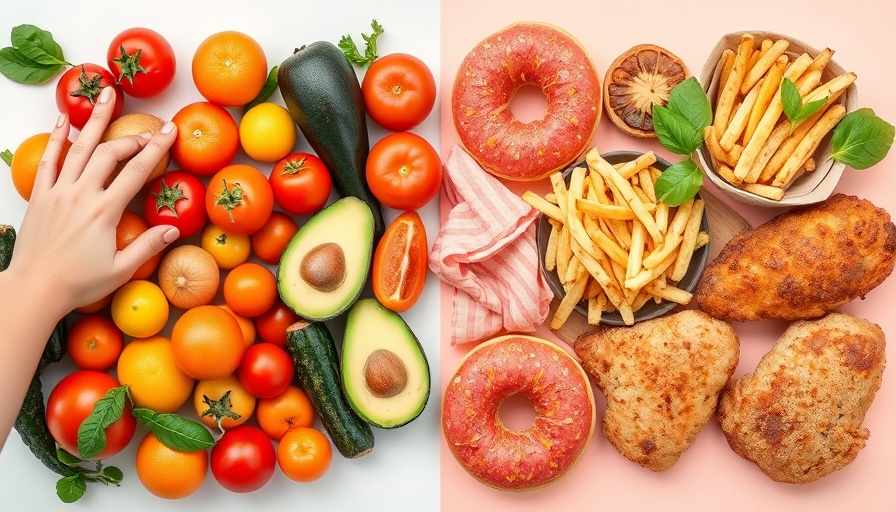
Rediscovering Your Relationship with Food: Why Trust Matters
In today’s health-conscious world, many individuals find themselves tracking their food meticulously, measuring every macronutrient with precision. But is this approach truly beneficial? While monitoring what you eat can provide valuable insights, over-relying on it may lead to stress and anxiety around meals. As we seek healthier lifestyles, a shift towards trusting our body’s cues can simplify our eating habits and enhance our well-being.
Understanding the Shift Away from Tracking
Tracking macros offers many benefits: it teaches us about the nutrient content of our favorite foods while enabling us to establish patterns in our eating habits. However, it can also become overwhelming. The constant calculation takes the joy out of eating, fostering a disjointed relationship between individuals and their food. If you find yourself feeling this way—overwhelmed by tracking—know that you're not alone, and there are alternatives.
Embracing Mindful Eating
Mindful eating encourages a deeper connection with food. Instead of fixating on numbers, you focus on being present during your meals: how food smells, tastes, and feels. Research shows that this practice can improve emotional regulation and reduce binge eating. Begin by simply enjoying your meals without distractions, tuning into your body’s hunger and satiety cues. Take note of what feels satisfying rather than obsessing over caloric intake.
The Power of Intuitive Eating: Trusting Yourself
Similar to mindful eating, intuitive eating emphasizes listening to your body's signals. This approach, informed by intuitive eating literature, helps to rebuild trust between you and food. Favoring what your body craves, rather than what a tracking app dictates, cultivates a healthy relationship with food. It’s essential to allow yourself to enjoy foods without guilt or fear. Ultimately, the goal is to shift your mindset from restriction to acceptance, creating a more balanced approach to nutrition.
Practical Ways to Transition Away from Macros
If you’re ready to drop the macros but want to maintain awareness, consider these strategies:
- Shift to Flexible Tracking: Rather than tracking every meal, consider doing it two to three times a week. This maintains a level of awareness while alleviating daily pressure.
- Use Visual Cues: Implement portion control using your hand as a guide. This simplified method allows you to visually assess portions, keeping meals balanced without onerous calculations.
- Focus on Quality: Enhance your meals by choosing whole, minimally processed foods. This not only improves nutritional intake but also supports overall health.
Staying Aware of Hunger and Appetite
Understanding the difference between hunger and appetite is central to intuitive eating. Hunger is your body’s physical need for nourishment, a response to energy depletion, while appetite can be influenced by emotional factors or social settings. Regular self-checks on your hunger levels—perhaps via a hunger scale from 1-10—can guide your eating decisions effectively.
Alternatives That Promote Wellness
As you navigate this journey towards a healthier relationship with food, integrating alternatives can offer a balanced approach. Strategies like the plate method or portion awareness through intuitive cues can assist without reverting to strict macro tracking. The idea is not to become overly fixated on any one method but to experiment with various techniques and find what works best for you—leading to sustainable wellness and overall improved health.
Final Thoughts: Move Beyond Numbers
While tracking macros has its merits, the journey toward self-trust must ultimately prioritize mental and emotional health. Relying on your intuition and fostering mindfulness can lead to a deeper, more satisfying relationship with food. Remember, focusing on health and wellness isn't just about numbers—it's about how you feel and the energy you bring to your life. If you’re ready to embrace a new paradigm around eating, it’s time to let go of strict tracking and rediscover the joy of nourishment.
 Add Row
Add Row  Add
Add 




Write A Comment